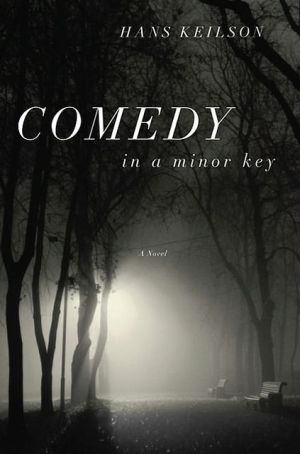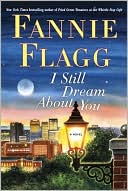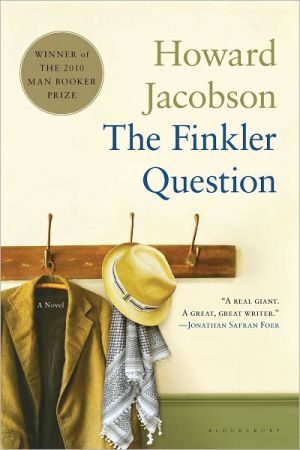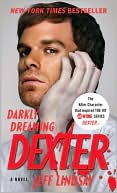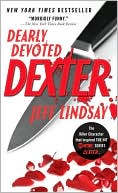Comedy in a Minor Key
A penetrating study of ordinary people resisting the Nazi occupation—and, true to its title, a dark comedy of wartime manners—Comedy in a Minor Key tells the story of Wim and Marie, a Dutch couple who first hide a Jew they know as Nico, then must dispose of his body when he dies of pneumonia. This novella, first published in 1947 and now translated into English for the first time, shows Hans Keilson at his best: deeply ironic, penetrating, sympathetic, and brilliantly modern, an heir to...
Search in google:
A penetrating study of ordinary people resisting the Nazi occupation—and, true to its title, a dark comedy of wartime manners—Comedy in a Minor Key tells the story of Wim and Marie, a Dutch couple who first hide a Jew they know as Nico, then must dispose of his body when he dies of pneumonia. This novella, first published in 1947 and now translated into English for the first time, shows Hans Keilson at his best: deeply ironic, penetrating, sympathetic, and brilliantly modern, an heir to Joseph Roth and Franz Kafka. In 2008, when Keilson received Germany’s prestigious Welt Literature Prize, the citation praised his work for exploring “the destructive impulse at work in the twentieth century, down to its deepest psychological and spiritual ramifications.” Published to celebrate Keilson’s hundredth birthday, Comedy in a Minor Key—and The Death of the Adversary, reissued in paperback—will introduce American readers to a forgotten classic author, a witness to World War II and a sophisticated storyteller whose books remain as fresh as when they first came to light.The Barnes & Noble ReviewIn conjunction with Comedy in a Minor Key Farrar, Straus and Giroux is also reissuing another Keilson title, Death of the Adversary -- a novel that looks at the way Hitler's rise to power was seen by European Jews at the time. Urgent moral fables, eyewitness reports from a time history cannot afford to forget, these two books should resuscitate the career of an almost-forgotten author.
\ Francine Prose…The Death of the Adversary and Comedy in a Minor Key are masterpieces, and Hans Keilson is a genius…Although the novels are quite different, both are set in Nazi-occupied Europe and display their author's eye for perfectly illustrative yet wholly unexpected incident and detail, as well as his talent for storytelling and his extraordinarily subtle and penetrating understanding of human nature. But perhaps the most distinctive aspect they share is the formal daring of the relationship between subject matter and tone…Rarely have such harrowing narratives been related with such wry, off-kilter humor, and in so quiet a whisper. Read these books and join me in adding [Keilson] to the list, which each of us must compose on our own, of the world's very greatest writers.\ —The New York Times\ \ \ \ \ From the PublisherPraise for Comedy in a Minor Key\ “For busy, harried or distractible readers who have the time and energy only to skim the opening paragraph of a review, I’ll say this as quickly and clearly as possible: The Death of the Adversary and Comedy in a Minor Key are masterpieces, and Hans Keilson is a genius . . . Although the novels are quite different, both are set in Nazi-occupied Europe and display their author’s eye for perfectly illustrative yet wholly unexpected incident and detail, as well as his talent for storytelling and his extraordinarily subtle and penetrating understanding of human nature. But perhaps the most distinctive aspect they share is the formal daring of the relationship between subject matter and tone. Rarely has a finer, more closely focused lens been used to study such a broad and brutal panorama, mimetically conveying a failure to come to grips with reality by refusing to call that reality by its proper name . . . Rarely have such harrowing narratives been related with such wry, off-kilter humor, and in so quiet a whisper. Read these books and join me in adding him to the list, which each of us must compose on our own, of the world’s very greatest writers.” —Francine Prose, The New York Times Book Review\ “This first-ever English translation of Keilson’s gripping 1947 novel about a Dutch couple hiding a Jewish perfume merchant in their home during WWII marks a welcome reintroduction to the author’s unfortunately obscure oeuvre . . . Beautifully nuanced and moving, Keilson’s tale probes the more concealed, subtle forces that annihilate the human spirit.” —Publishers Weekly\ “[Comedy in a Minor Key’s] design is so neat, spare, and geometric that to think of it is like tapping a spoon to a crystal glass.” —Yelena Akhtiorskaya, The Forward\ “A brisk, engaging work of Holocaust literature that deserves to be better known.” —Brendan Driscoll, Booklist\ “What Keilson had experienced, body and soul, went into this precisely composed book, which succeeds in capturing the tragedy of countless anonymous victims alongside the grotesquerie of the individual tragic case.” —Ulrich Weinzierl, Frankfurter Allgemeine Zeitung\ \ \ \ The Barnes & Noble ReviewFrom Brooke Allen's "READER'S DIARY" column on The Barnes & Noble Review\ \ Everyone knows Anne Frank. No single figure has ever done more than this adolescent girl to make the world feel the plight of Europe's Jews during the Nazi Holocaust. Millions have read of the hidden lives she and her family led for two years in the"secret annexe" behind her father's offices, ministered to by gentile friends who brought them news and supplies. Anne's narrative is a marvelously subjective account of what it feels like to be hunted: the cramped quarters, the enforced silence, the frequently uncongenial company.\ But what of the helpers -- those who risked their own skins to hide and protect these hunted Jews, people like the Gieses who tried so hard to save the Frank family? This is a subject taken up by Hans Keilson, a German-Jewish doctor who emigrated from Hitler's Germany to the Netherlands in 1936, worked in the Dutch underground during the Nazi occupation and is still, miraculously, alive to tell the tale some seventy years later. Originally published in German in 1947, Keilson's wry novella Comedy in a Minor Key was finally translated into English and published in England last year to celebrate the author's hundredth birthday. Now it is making its first appearance in the United States.\ Dedicated to the Dutch pair who concealed Keilson himself during the war, Comedy in a Minor Key is the story of an unremarkable young couple, Wim and Marie, who take in and hide Nico, a Jewish perfume dealer, during the German occupation of Holland. The book's title might mystify, for of course the subject is not exactly one usually associated with comedy of any sort. But as Keilson cleverly reminds us with this gently mocking narrative, all human acts and activities have comic potential. It is the very ordinariness of the three characters' daily concerns, set so incongruously against the heroic roles fate has cast them in, that creates an uneasy humor. (In his appreciation for the absurd, Keilson shows a marked affinity with another Central European writer, Milan Kundera.) How are they to deal with the cleaning lady? The milkman? Nosy neighbors?\ Wim and Marie are heroic in spite of themselves; in their own eyes, they appear merely dithering and inadequate. It had not occurred to them to join the resistance movement, but when Wim's colleague Jop approaches them secretly they readjust their vision of themselves and their role in the war effort.\ \ "Patriotic duty," Jop had said, and the concept, which had never made the slightest impression on Wim before, much less been able to move him toward any action, sounded, now that the Netherlands had been conquered and occupied, new and full of meaning. Jop knew the people he approached: with one he talked about "a purely humane act," with another it was about "Christian charity for the persecuted," and to a third he spoke of "patriotic duty." This was how he achieved his goal, the same in every case.\ \ The phrase that snares Marie and Wim might be "patriotic duty," but it would not be enough without the element of empathy, and this is not lacking. Thinking about Nico, Marie reflects that\ \ She had seen fear: the terrible helpless fear that rises up out of sadness and despair and is no longer attached to anything -- the helpless fear that is tied only to nothingness. Not fear or anxiety or despair about a person or a situation, nothing, nothing, only the exposure, the vulnerability, being cast loose from all certainties, from all dignity and all love…. And Marie understood that words like "love of your neighbor" or "national duty" or "civil disobedience" were only a weak reflection of this deepest feeling that Wim and she had felt back then: wanting to shelter a persecuted human being in their house.\ \ So: Wim and Marie are prepared, along with the hapless Nico, to suffer major dangers and minor indignities, inconvenience, the painstaking necessity of planning every moment and every action for the foreseeable future. And then, disaster: Nico develops pneumonia and unexpectedly dies. "He had defended himself against death from without, and then it had carried him off from within." The difficulties of hosting a dead body, it turns out, are every bit as great as those involved in sheltering a live one. How to dispose of the corpse?\ Wim and Marie are genuinely grief-stricken (for they had become very fond of the unhappy Nico), yet they can't suppress inappropriate thoughts and emotions.\ \ It was practically a trick he had played on them with this death, on the people who had kept him hidden for an entirely different purpose. He didn't need to go into hiding in order to die, he could have just simply, like all the countless others….\ And then, too, there was a small, all-too-human disappointment left over: that he had died on them. You don't get the chance to save someone every day. This unacknowledged thought had often helped them carry on when, a little depressed and full of doubt, they thought they couldn't bear this complicated situation any longer and their courage failed them….\ She had secretly imagined what it would be like on liberation day, the three of them arm in arm walking out of their house…. It would give them a little sense of satisfaction, and everyone who makes a sacrifice needs a little sense of satisfaction.\ \ The two are now obliged to perform all sorts of undignified capers to rid themselves of their defunct guest. In the process they make a serious blunder, and the penalty for harboring a Jew is death. Will their case come under the attention of a "good" policeman -- one, that is, who secretly supports the Resistance and will turn a blind eye -- or a bad one, a willing servant of the Nazi occupiers? With no way of knowing, Wim and Marie now have to go into hiding themselves: the original situation is reversed. Will they cope with incarceration any better than Nico did? Keilson provides the unpredictable answer in elegant, understated prose.\ In conjunction with Comedy in a Minor Key Farrar, Straus and Giroux is also reissuing another Keilson title, Death of the Adversary -- a novel that looks at the way Hitler's rise to power was seen by European Jews at the time. Urgent moral fables, eyewitness reports from a time history cannot afford to forget, these two books should resuscitate the career of an almost-forgotten author.\ \ \
